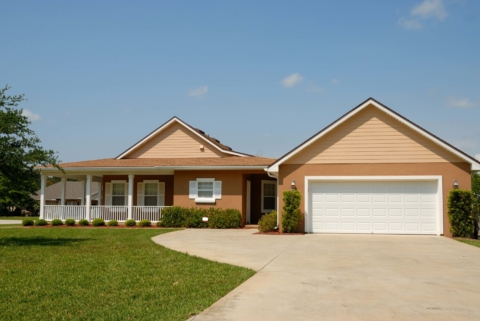How to Buy a Foreclosure & Other FAQs
Most of us are familiar with the term “foreclosure” but unless you’ve bought (or dealt) with a foreclosed home, you probably have a lot of questions. RealtyHive has the answers you need to become well-versed in home foreclosure.
What is a foreclosure?
Foreclosures happen when homeowners can’t keep up with their monthly mortgage payment.
With the average house costing just over $226,000 in the US, it would take most people a decade or longer to afford a house outright. However, people need places to live. Homeowners take a loan or mortgage out from a bank in order to pay their home off over time.
If homeowners aren’t able to pay back this monthly mortgage, they’ll default on the loan. Homeowners in this situation will lose their house — it becomes a foreclosure.
What causes a home foreclosure?

There are any number of reasons why a homeowner might miss their mortgage payments. Illness and unemployment are two of the biggest reasons.
The specific foreclosure process depends on the lender and the state, but homeowners will get a notice after 3 to 6 months of missed mortgage payments. This notice lets homeowners know they’re at risk of losing their property.
At this point, homeowners enter pre-foreclosure. Depending on the state, they have anywhere between 30 to 120 days to figure out a solution before going to auction. The homeowners might pay what they owe or work with a lender for a short sale. If they don’t pay what they owe, the auction is the next step.
How does an auction work?
In most states, the government acts as a middleman and auctions the property before foreclosure. The property goes to the highest bidder, who is usually (but not always) the bank.
If the bank doesn’t win, the money from the highest bidder still goes to them and clears the debt. Otherwise, the bank gets the house if they win and they try to sell it.
These auctions go by a number of names: sheriff sales, federal sales, trustee sales — the list goes on.
How do you find a foreclosed home?

By law, foreclosures have to be made available to the public. You can Google your county and “sheriff sale” and you can access a list. Certain real estate agents specialize in foreclosures; contact them to see what’s happening in your area.
Some interested buyers like to drive around and look for homes that seem unoccupied, then research whether or not it’s a foreclosure. In some states, foreclosure notices must be posted on the front door.
Even if that’s not your strategy, it’s a really good idea to at least drive by the property you’re considering bidding on. Just make sure you stay off the property and respect from a distance. Especially if the homeowners are there, you don’t want your presence to make them feel worse. Foreclosures are a living nightmare for homeowners.
How do you buy a foreclosed home?
The actual buying takes place in most instances, you’ll still need pre-approval from a bank first and foremost. Some auctions (like sheriff’s sales) require you to have the money ready to go in days. With that example, you’ll need cash or another type of loan that’s ready to go.
In a RealtyHive time-limited event, the seller (in this instance, the seller is a bank) chooses how they want to accept payment. Some banks might accept traditional mortgages, but a cash offer is still more of a guarantee, and more likely to win the bid.
Do your research before getting too invested. The last thing anyone would want is to place the winning bid, only to learn they have to pay in cash.
Is it a good idea to purchase a foreclosed home?
It definitely can work out, but much of it depends on what you want out of this property. If the only reason you’re leaning towards a foreclosure is because you think it’s a surefire deal, be prepared to invest much more than the opening bid.
Foreclosures oftentimes aren’t in great condition — if the homeowners struggled to pay their mortgage, there’s a good chance they struggled to pay for maintenance and general upkeep as well.
You can still put in an offer or bid with a contingency regarding home inspection, but banks (or owners) often try to sell these homes as-is. Some sales require selling as-is. With that in mind, you have to be ready to fix things up. While some people love the idea of a fixer upper or flipping a property, those who want a low-hassle home will likely take more comfort in the traditional buying route.
Are foreclosures the only way you can buy in an auction?
Nope! It’s a common misconception, but many people put their home up for sale in a time-limited event with RealtyHive, regardless of financial circumstances. You can even put in an offer before the event and take a walk-through. Look through our listings to find your next home or investment property!

